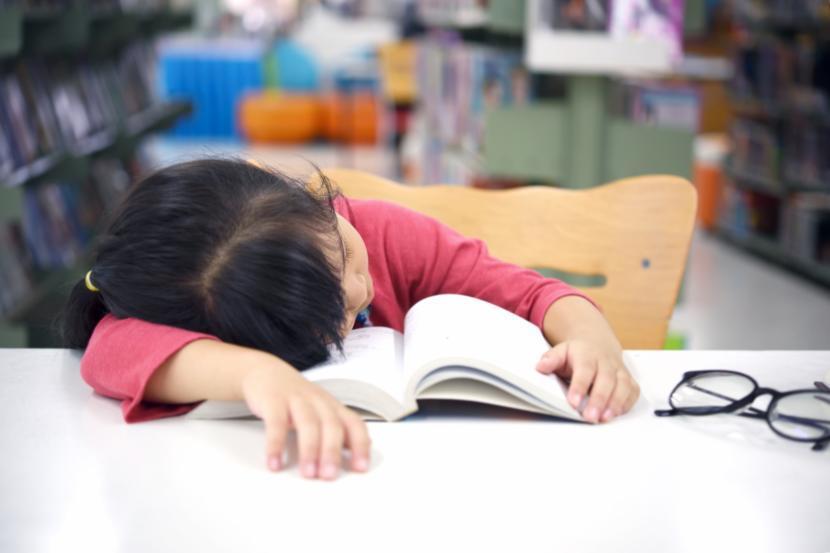The Negative Impact Sleep Apnea Can Have on a Child's Memory

Many already know that the pauses in breathing for a long period of time are what defines sleep apnea. However, what many may not know is that this disorder affects 1 out of 4 children and may occur between the ages of 2 and 8 years old. The American Sleep Apnea Association indicated that researchers have seen a specific impact of sleep disordered breathing on specific functions of the brain such as cognitive flexibility, organization, planning, and self-regulation of arousal.
Children who have sleep apnea tend to snore loudly at night, and they experience the same pauses, gasps, snorts, or even stops in breathing that many adults do. These disturbances may cause the children to be awake, which in turn causes them to have a disrupted sleep pattern. As for signs that are observable during the day, these can include some problems regarding behavior or social situations, difficulty in waking up, having headaches, moody, feeling sleepy in the morning, and having a nasal voice.
It is a well-known fact that sleep is essential for the consolidation of memories. Consolidation is the process of building a memory after its first acquisition, and this is a very important process for long-term memories to be formed. Originally, memory has usually hindered by some interference related to behavioral, pharmacological, and electrical. But with memory consolidation, the memory will be resilient to these interferences along the way.
According to The Human Memory, sleep, specifically slow-wave, or deep sleep, is considered to be pivotal in improving the consolidation of information in memory. The sleeping brain has some activation patterns that mirror the activities done throughout the learning tasks from the previous day. These activation patterns suggest that new memories may be solidified through the process of reactivation and rehearsal.
If this is the case, a child whose sleep has been bothered by sleep apnea symptoms may have already gotten the negative effects of the situation.
This is the reason that stimulated a group of researchers to conduct a further study that planned to see how a child's memory would be affected by broken sleep.
Sleep apnea affects children’s cognition and mood
In a study that was spearheaded by Leila Kheirandish-Gozal, they examined the link between untreated sleep apnea and children’s brain cells. [¹] These particular brain cells are tied to cognitive and mood.
In the said study, they compared children between the ages of 7 and 11. The children were divided into two groups: one group was composed of children who have had a reported case of obstructive sleep apnea in moderate and severe conditions while the other group was composed of children who sleep normally. The study then resulted in a significant finding in which they found out that children with sleep apnea showed a reduction of gray matter in several regions of their brain. This gray matter involves brain cells that handle memory, movement, speech, emotions, self-control, and decision-making.
One area where the reduction of gray matter is seen is on the frontal cortices of the brain. This brain area is the one responsible for the handling of movement, memory, judgment, and language. This finding supports the assumption that sleep apnea can indeed affect the children’s cognitive cells, including the cells that handle their memory.
However, there is a small loophole in this study. In order to make a strong conclusion, an extensive test of the children’s cognitive function before they experience the onset of sleep apnea must be administered. This will help them measure the loss of neurons from when the children were able to sleep normally until they experience sleep apnea.
Sleep-disordered breathing: A recent study development
The study was conducted on children with SDB or sleep-disordered breathing. [²] This condition is a range of symptoms that involve different degrees of upper airway collapses. This kind of sleep disorder is known to be common among children as 1 out of 10 children suffer from some level of SDB.
Both snoring and obstructive sleep apnea (OSA) is found in the lower levels. Obstructive sleep apnea is characterized by the collapsing of airways that causes breathing to stop during a person’s sleep. Unfortunately, there isn’t enough study of OSA in children unlike in cases with adults.
SDB is said to also have a negative impact on children’s academic success. However, there is an inconsistent measurement of children’s short-term memory deficits. The possible reason behind it is the fact that neuropsychiatric tests depend on short-term memory while academic performance depends on the long-term memory.
This pushes the researchers to fully attempt to understand how children’s short-term memory is affected by OSA.
How the study was conducted
The researchers gathered 36 children with ages 5 to 9 at Boston Children’s Hospital Pediatric Sleep Laboratory in Massachusetts. They divided them into three groups, categorizing them in a control group, snoring children, and children with OSA.
Before the study, a memory game (spatial declarative memory task) was given to the children. Aside from that, they also tested the children’s attention by asking them to press a red circle whenever it appeared on a black screen.
Expectedly, the researchers found memory deficits in children with mild OSA. It was also shown that these children have reduced number of sleep spindles, which are the short bursts of activity in the brain that occur during sleep. However, the biggest reduction of sleep spindles was found in children who snore the most.
Effects
The American Sleep Apnea Association indicated that the children with sleep apnea have the possibility to ‘grow out of’ their sleep disorders. However, there has been some evidence showing the negative effects of untreated sleep disorders in children. This may also demand highly on financial aspect if these disorders persist.
Conclusion
This study plainly shows the need to pay more attention in treating even the mild cases of sleep apnea, such as obstructive sleep apnea. Children deserve to showcase the full potential of their cognitive skills. However, if this chance is hampered by this disturbing disorder, then that may lead to other serious complications. Moreover, this new study also calls for more studies for other diseases, minor or major ones, that occur in children. This is because normally, there are further studies that focus on adults more so than children, even when the disease is found in both.
This also calls for parents to observe their children’s sleeping behaviors. This is because children themselves or even adults who are struck with sleep apnea cannot be aware of their own sleeping behaviors. It's definitely helpful, in this case, for family members to observe once they start to notice the symptoms.
Citations:
[¹] https://www.nature.com/articles/srep44566
[²] http://journals.plos.org/plosone/article?id=10.1371/journal.pone.0186915












